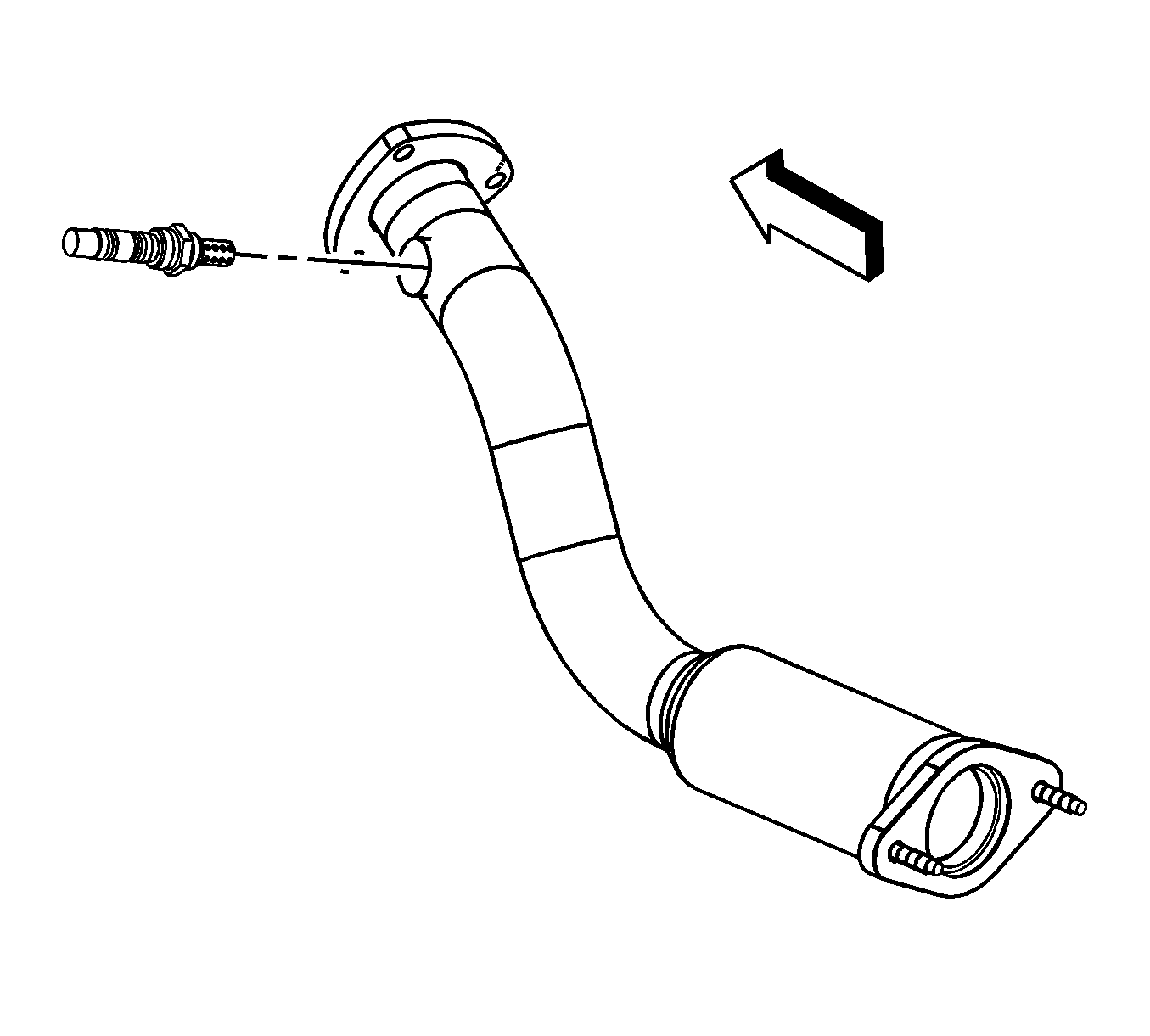Special Tools
J 39194 Oxygen Sensor Wrench
Removal Procedure
Caution: The oxygen sensor uses a permanently attached pigtail and connector. Do not remove the pigtail from the oxygen sensor. Damage to or removal of the pigtail connector could affect proper operation of the oxygen sensor.
Caution: The use of excessive force may damage the threads in the exhaust manifold/pipe.
Caution: Refer to Heated Oxygen Sensor Resistance Learn Reset Caution in the Preface section.
Note: The in-line connector and louvered end must be kept clear of grease, dirt or other contaminants. Avoid using cleaning solvents of any type. DO NOT drop or roughly handle the heated oxygen sensor (HO2S).
Note: The HO2S may be difficult to remove when the engine temperature is less than 48°C (120°F).
- Raise and support the vehicle. Refer to Lifting and Jacking the Vehicle.
- Remove the connector position assurance (CPA) retainer (1).
- Disconnect the HO2S electrical connector (2).
- Using the J 39194 , remove the HO2S.


Installation Procedure
Note: A special anti-seize compound is used on the HO2S threads. The compound consists of a liquid graphite and glass beads. The graphite will burn away but the glass beads will remain, making the sensor easier to remove. New or service sensors already have the compound applied to the threads. If the sensor is removed and is to be reinstalled, the threads must be coated with an anti-seize compound before reinstallation.
- If reinstalling the old HO2S, coat the threads with anti-seize compound GM P/N 12377953 or equivalent.
- Using the J 39194 , install the HO2S.
- Connect the HO2S electrical connector (2).
- Install the CPA retainer (1).
- Lower the vehicle.

Tighten
Tighten the HO2S to 41 N·m (30 lb ft).

